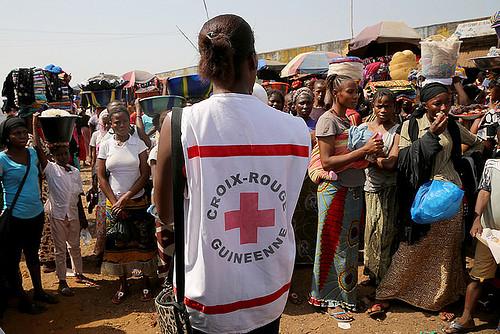Where is the Ebola? Given all of the recent Ferguson coverage, the beginning of the holiday season, and the ISIS threat, it certainly hasn’t been in the media anymore. Well how about geographically? If you were to ask a random American off the street, you’d likely get a one-word response:
“Africa.”
While this is technically true, it’s deceptive; Ebola cases exist in mass quantities only in the three countries most afflicted by the epidemic: Liberia, Sierra Leone, and Guinea, with a few bordering countries experiencing a handful of cases. In watching the recent news, however, one would think that the Ebola virus has made its way across all the vast oceans of the world to infect and destroy, carried by anyone with African heritage. One such African affected by the hysteria is Grammy-winning Beninese singer Angelique Kidjo. In a CNN interview, the UNICEF Goodwill Ambassador recounted an incident in which a cab driver asked her where she was from and, upon learning, replied succinctly: “Ebola.” “Does it look like I have Ebola?” she said. Exhibiting no fever symptoms, no bleeding, no headaches or organ failure, Kidjo most obviously did not have Ebola. However, given the wildfire response of the national media to the epidemic, the unknowing American would assume that all Africans have Ebola. The media coverage of the Ebola crisis provided an effect opposite to its intention. “I thought Ebola would bring greater journalism,” said Kidjo, “that they’d write about the need for great nurses and great doctors.” Unfortunately, news coverage exaggerating the intensity of the epidemic has served only to scare potential aid workers from traveling to the afflicted countries to provide medical care. The forced quarantine of nurse Kaci Hickox–who showed no Ebola symptoms–served as an attempt by local government officials to keep the virus out of the United States. The true consequence, however, was to help the spread of Ebola on a global level by inhibiting aid workers.
The walls built up around the country to block out the virus are dangerous to the handling of this epidemic. By fostering a “not-in-my-backyard” attitude, American government officials and media personnel have demonstrated the dangers of disunity in the face of Ebola. Though the afflicted in West Africa are in need of care, the obstructionism of hysteria has prevented American aid workers from providing it. The local government approach has also served as an effective political tactic, an opportunity to again criticize the federal government as incompetent.
The real threat of Ebola to the United States is slim. “The average American is in far more danger from a ham sandwich or the neighborhood salad bar,” said Wall Street Journal reporter Holman Jenkins. Of the ten Ebola cases in America, only two resulted in fatalities. American medical care is fairly effective and reliable in fighting domestic Ebola, however forty-one percent of those polled by the Pew Research Center say that they are “worried that they themselves or someone in their family will be exposed to the virus.” Seventeen percent are “very worried.” The chances, however, of you or someone you love contracting Ebola without traveling to the most afflicted countries is extremely slim. The fear, however, is not irrational. Given the media fear-mongering and mysterious nature of the disease, the public’s worry is understandable. Mysterious and threatening, the Ebola virus has created massive amounts of anxiety for average Americans, but it needs to be made clear that they have nothing to worry about.
